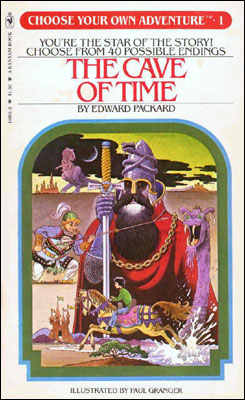Inevitably, in the fall, I turn once again to horror. Desperate to find horror that scares me, that appeals to me, that gets me. In the back of my mind I suspect that I’m either incapable of being scared by fiction or I’m fundamentally misunderstanding what people man when they talk about the effect horror has on them.
I’ll keep you posted.
I keep trying books, sometimes movies. Movies are tougher. Jump scares are cheating, and not scary. That’s surprise. That’s not fear. That’s sticking out your foot to trip me and saying you beat me in a fight because I’m on the ground now. Movies are also tougher because ugh, who has time to sit down for two hours in a row? Unless it’s marathoning Sense8 or catching up on The Toast or Twitter okay I see the problem lies with me. Strike that second objection to movies.
The point is podcasts. This year I got really interested in podcasts as a medium for horror, because
- shorter than movies!
- I can listen at work!
- indie!
- there really is something about the additional emotional pull of a story when it engages even one sense, which, let’s be honest, I love books, but they don’t typically engage your senses in the story. Yes, tactile feel of paper, smell, whatever. But that’s universal to books, and has nothing to do with the specific story it’s trying to tell you.
I have a list. I always have a list. Because so many things won’t work for me, for arcane and mysterious reasons that a therapist could best explicate, but: I’ll do my best.
Here are some podcasts in an arcane and mysterious order:
Lore. Not fiction. But I really like it! Some of the episodes benefit from the short length, and some feel really abridged. Sometimes after an episode I’ll go look up more on the topic, and sometimes at the beginning I’ll realize I already know the story, and I’ll squee a little at my desk.
Wolf 358. Caveat that I’m still not sure if anyone would categorize this as horror, rather than scifi, but I’m curious about fictional podcasts in general. The reason I can’t promise the genre is that I was only able to get through one episode before bailing. Life is short, my friends. Too short to spend on a story with yet another snarky male protagonist.
Shadowvane. I just listened to the first few episodes of this today, and while I think I’ll probably keep going, it is the most hokey of all of them. It feels very acted, and I swear if they throw one more terrible and hammy accent at me, I’m out. But maybe if I think of it as an old fashioned throwback, I can get past that, because the premise of a powerful medical company appearing altruistic and possibly controlled secretly by a beast that requires something is kind of intriguing.
The Black Tapes. Aaagh. I want to like this one. Maybe I do! One day I was feeling a nonspecific anxiety, for no reason I could fathom, until it dawned on me that I’d been listening to The Black Tapes all morning. But as I continued, I never experienced that again. I finished the first season, but the weaknesses in the writing and acting really got to me. They don’t quite nail the necessary verisimilitude to keep me in the story enough to creep me out. There’s some unnatural, stiff or unnecessary, dialogue, not helped by the occasional flat (or overly affected) delivery. And the ending to the season was disappointing as horror usually is, abrupt and unfinished as serials often are. So.
What bothers me most, because its such a small stupud thing to repeat, is that no one in the Black Tapes world knows what a podcast is. The reporter has to explain every time, noting that “it’s not radio” like it’s the year 2000. Is that supposed to be a running joke? If so, it’s terrible and they should learn what a joke is.
Limetown. Limetown is the one that started me on all the podcasts. There were three episodes available when I discovered it, and I was pretty into them. A little unsettled, even. One might say I was creeped out. It’s more focused, each episode centering on one interview, which helps it avoid a lot of the small issues of The Black Tapes. The reporter seems less stupid than the reporter for The Black Tapes. It’s not about demons and ghosts and the paranormal, which I suspect also helps me like it more. It’s science gone wrong and shadowy figures out to get you and sharing thoughts (with pigs) and so on. It’s extremely well done, so I am waiting eagerly for the next episode and wishing/hoping/praying that it’s not actually going to be only 7.
NEXT TIME: I just listened to the first episode of Tanis, new from the same people as The Black Tapes, and I am way, way more into it. Time will tell if the same problems crop up, but the reporter is different, and the subject matter too. There are no demons or evil monks yet. Only a mysterious mythology.
